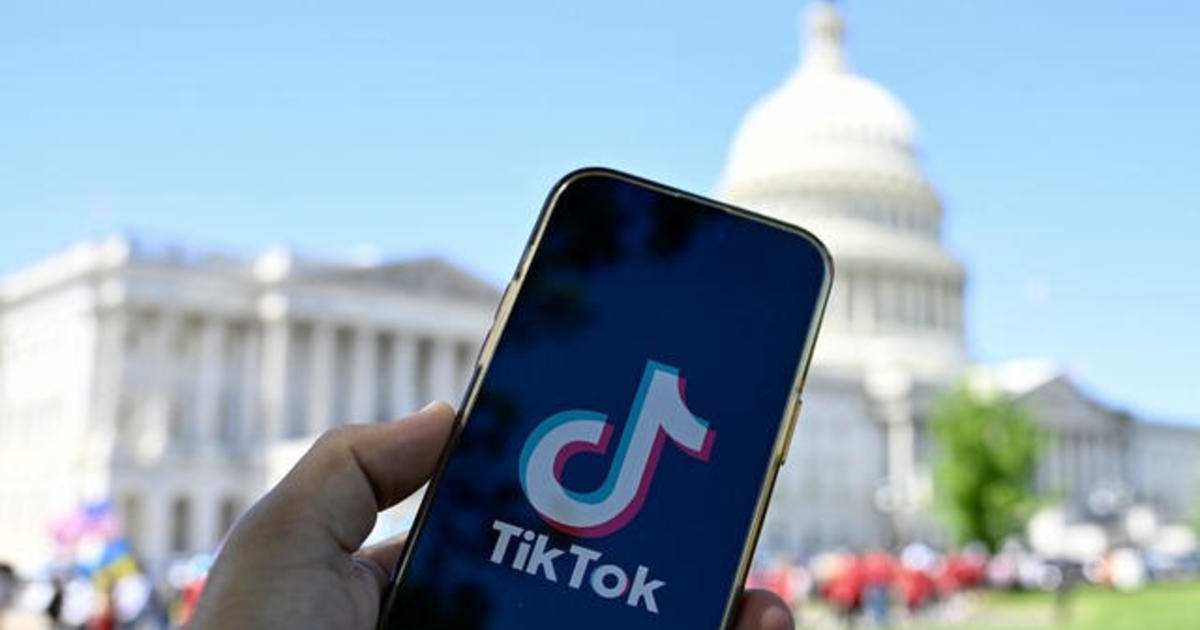California's fast-food workers are now the highest paid in U.S. with new $20 per hour wage
Most California fast-food workers are now earning at least $20 an hour — the highest minimum wage across the U.S. restaurant industry. Yet the pay hike, which went into effect on April 1, is sparking furious debate, with some restaurant owners warning of job losses and higher prices for customers, while labor advocates tout the benefits of higher wages.
The new law, signed by Governor Gavin Newsom last fall, requires that fast-food chains with 60 or more locations nationwide pay their workers at least $20 an hour. The means the state's 553,000 fast-food workers will earn more than the state's $16 minimum wage for all other industries.
The new baseline wage comes as the fast-food industry is seeing booming earnings, with big chains like McDonald's enjoying strong revenue growth and wider profit margins in recent years. That's partly due to menu prices that have far outpaced inflation, with fast-food costs surging 47% over the past decade, compared with an average of 29% for all other prices, according to a new analysis from the Roosevelt Institute, a nonpartisan think tank.
"Prices have been so much higher than operating costs over the last decade that these companies could just absorb higher operating costs," Roosevelt Institute labor expert Alí Bustamante, a co-author of the analysis, told CBS MoneyWatch. "This is about raising the floor and making sure that $20 being the new minimum wage puts workers on a better economic footing to cover their household needs."
Prior to the April 1 pay hike, the highest paid fast-food workers in the U.S. were in Washington State, which has a minimum wage of $16.28 per hour.
The boost will help workers like Ingrid Vilorio, who said she started working at a McDonald's shortly after arriving in the United States in 2019. Fast food was her full-time job until last year. She now works part-time at a Jack in the Box about eight hours per week, in addition to other jobs.
"The $20 raise is great. I wish this would have come sooner," Vilorio said through a translator. "Because I would not have been looking for so many other jobs in different places."
What's on the menu — price hikes
Some California restaurant owners say that higher labor costs will lead to higher prices for customers, and even curb hiring. One California franchisee told CBS MoneyWatch that while major fast-food chains might be able to absorb such costs, smaller operators will struggle.
"We aren't these big corporations with deep pockets — we're not Wall Street, we are Main Street," said Alex Johnson, who owns 10 franchised restaurants in the San Francisco area, including Auntie Anne's and Cinnabons locations.
Johnson's company is subject to the new wage law because the parent franchisors operate more than 60 restaurants across the U.S.
Johnson said the wage hike comes at a time when his restaurants are already coping with softer sales, which he attributes to consumers sapped by two years of elevated inflation and the high cost of living in California. To offset the new $20 minimum wage, Johnson expects to increase prices about 10% this year, which he plans to do in two smaller increments.
"You couldn't think of a worse time to raise prices," he said.
The typical California restaurant is facing an additional expense of $250,000 annually to cover the April 1 wage hike, according to the Save Local Restaurants coalition, citing data from a McDonald's owner association. The group represents restaurant owners.
"We know we have to take something at a significant increase when you talk about a 20%-ish increase in wages," Chipotle Chief Financial Officer Jack Hartung said on an earnings call last month about the California law.
Chipotle's 3,400 locations across the U.S. could see a 1% increase in prices to compensate, he added.
Starbucks told the Los Angeles Times it plans to offset the higher wages by boosting prices, among other measures.
"There isn't a quick-service restaurant owner in California who can easily shoulder an immediate 25% wage increase for all their employees," Mike Whatley, vice president of state affairs and grassroots advocacy for the National Restaurant Association, a trade organization for the industry, told CBS MoneyWatch.
He added, "Consumers are starting to see this in menu prices, and employees across the state are starting to feel it, too."
Some critics of the wage law said the higher costs will lead to layoffs and curb hiring. Already, some Pizza Hut locations in California are planning to cut jobs, according to state labor filings. Pizza Hut didn't immediately return a request for comment.
Johnson noted that he's not hiring at the moment and plans to introduce more automation, such as ordering kiosks, to reduce his need for human labor. He's also thinking about selling his franchise locations in California to focus on restaurants in Nevada, where costs are lower.
"I work really hard to treat employees fairly, but there are consequences to these actions that increase costs — we're not hiring anymore, and I'm contemplating closing or selling my restaurants," Johnson added. "It's a sad time."
"An economy that works for all"
Labor advocates argue the new law will help fast-food workers, who earn an average of $16.60 an hour, or just over $34,000 per year, according to government data. That's below the poverty line for a family of four in California.
The higher pay is "a transformational step toward an economy that works for all, not just billionaires," Tia Orr, executive director of the Service Employees International Union California, a labor group that pushed for the law, told the Associated Press.
When Newsom signed the law last year, he dismissed the notion that fast-food jobs are primarily held by teenagers, underscoring that many households depend on the jobs for income. The average age of fast-food workers is about 26, according to Business Insider.
Meanwhile, dozens of states and localities have hiked their minimum wages during the past several years, even as the federal baseline remains at $7.25 an hour — a rate that has remained frozen since 2009. Some economic research has found that higher wages don't lead to job losses, while having the upside of providing financial security to workers and boosting consumer spending, which stimulates broader economic growth.
California businesses have had to digest multiple wage hikes during the past several years, yet continued to operate, experts point out.
"You've experienced minimum wage hikes in California for over 10 years now," Bustamante said. "You don't open up a business in California without expecting minimum wage increases."
—With reporting by the Associated Press.




